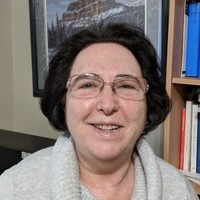In the coming months, the Association of Translators and Interpreters of Alberta (ATIA) will be profiling some of our prominent members and those who have served (or continue to serve!) ATIA in a volunteer capacity. This month, we talked to Perla Ben Zvi, certified translator and current president of ATIA.
How long have you been part of ATIA?
In the year 2002 I became an English to Spanish Certified Translator.
Tell me a bit about your personal history and what brought you to the organization.
I came to Canada in 1989, and after going through the process of “being an immigrant” myself, I tried to give back to the community by translating for immigrants at a non-profit organization.
I loved translating from the beginning. I enjoy translating and interpreting for my clients so they may achieve their goals. I enjoy finding ways to represent as faithfully as possible the meaning of a text in another language and the constant learning experience of working on translations. Sometimes the challenge is the topic and sometimes it is in how to precisely calibrate the translation to make it the best fit for the country in which the material will be presented. Most of my translations are for Latin America where there are lots of different countries and I need to adapt the translation accordingly.
I was born in Argentina, where I studied four years towards a degree in Economics. To improve my translations skills, I completed a program offered through New York University. It was very interesting to be part of a class with students from different Latin American countries and to become aware of the subtle differences in the Spanish of the various countries.
In which positions have you served the organization?
I was the treasurer for two years from 2005 to 2007. At that time the treasurer used to do the accounting, write receipts, issue cheques, prepare the budget, etc. We were a smaller organization then, so the support was limited. From 2015 to 2017, I held the position of Vice President for Northern Alberta and I currently serve as the President.
Can you tell me about some of your most enjoyable moments as a translator? What are some of the most memorable projects you have worked on so far? Do you have a favourite?
I very much enjoy doing translations in the agricultural field. I always have something to learn about plants and animals and the richness of Alberta’s agriculture.
What struggles have you had?
Like many other translators, a big struggle is to find that “right word” in the sentence: you end up reading lots of material in the target language to make sure that the translations will read as ‘naturally’ as the original English text. At times, the problem is that the document in English was not written in the best possible way and that makes translating it effectively a bit challenging, but you work around such things.
How did you know you were cut out for translation work?
When I started to do translations I did not confine myself to personal documents. I found that enjoyed the entire process of reading, doing research, translating, editing and feeling very good about the translation I had just finished. I enjoyed reading books in the topics of translation, especially one by Marina Orellana entitled “La traducción del inglés al castellano”. Such things indicated to me that I had found my passion and my vocation.
What type of work do you primarily do? Is there another type you wish you did more of?
Over the years, most of my work has been translation, but in the last couple of years, I have increased my workload as an interpreter. I find that the balance between translations and interpretations suits my professional goals of aiding a wide variety of clients very well.
ATIA has been around since 1979! In your opinion, what makes the organization successful and gives it such longevity? What sets ATIA apart?
ATIA is a professional organization and part of a national body (CTTIC). A major reason for our success and longevity is that we take pride in the way translators and interpreters become members after proving themselves as professionals through rigorous exams. ATIA has a very strong Code of Ethics and the members are aware of the way they must conduct themselves in the field. Such standards have always set our members apart – to the satisfaction of their clients – and that makes the organization stand out for the better.
To become a member of ATIA requires preparation, experience, commitment and continuous study.
What vision have you brought to the position of President?
My vision is to help establish ATIA as the “place to go” for clients looking for professional interpreters and translators with high quality and ethical standards.
What do you like to do in your free time?
I like to travel, read books, and be with my family.
What is a quirky fact someone may not know about you?
I like salads and soups.
 Perla Ben-Zvi is a Certified English-Spanish Translator and an Associate Community and Court Interpreter. Perla provides high-quality English-Spanish translations in a variety of areas, as well as exceptional interpreting services in a number of settings. Her studies also include CISOC Community Interpretation Protocols and Procedures training and police interpreting. Perla has more than 20 years of experience working in the translation industry. Perla lives in Edmonton with her family.
Perla Ben-Zvi is a Certified English-Spanish Translator and an Associate Community and Court Interpreter. Perla provides high-quality English-Spanish translations in a variety of areas, as well as exceptional interpreting services in a number of settings. Her studies also include CISOC Community Interpretation Protocols and Procedures training and police interpreting. Perla has more than 20 years of experience working in the translation industry. Perla lives in Edmonton with her family.



